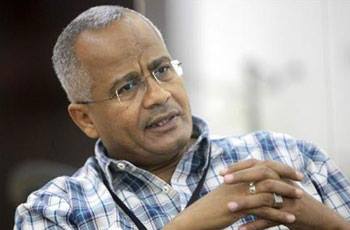Restructuring of Sudan’s Energy Sector: A New Era

By: Mohamed El Mardi El Tegani
Chairman, Saturn Green
Energy
Last week, a significant restructuring was announced by the Interim Council of Ministers in Sudan’s troubled energy and electricity sector.
The restructuring decision dissolved the five existing electricity companies, merging their functions into a single entity: the Sudan Electricity Company. This new company will oversee the departments of thermal, hydro, renewable energy, transmission and distribution, and projects. This move corrects the earlier mistake of splitting the sector into five companies during the previous regime.
For decades, Sudan’s energy sector has struggled, with various political regimes failing to address the persistent issues in power generation. At its peak, Sudan’s access to electricity has never exceeded 25% (under 2,500 MW). Currently, the ongoing war has severely damaged or destroyed much of the electricity infrastructure, pushing the country back to the Stone Age.
A crucial task for the newly formed consolidated company is to rectify the country’s energy mix. It is unsustainable to rely on thermal power generation, which represents 53% of the mix and depends on imported fuels—a challenge in a country facing a constant foreign currency shortage. Notably, 80% of the country’s foreign currency requirements are for fuel imports, with 80% of these imports used for power generation.
Moreover, the pursuit of building hydro dams has proven uneconomical and has caused significant social and environmental disruptions. Therefore, this approach should be halted. Sudan’s viable option lies in embracing renewable energy technologies without reservation. The country is blessed with abundant solar and wind resources, considered some of the best in the world. Renewable energy is flexible enough to facilitate a shift from centralized generation and massive transmission and distribution networks to distributed energy and microgrid systems.
Billions of dollars were previously wasted on building extensive transmission networks before establishing adequate generation capacities. Redirecting these funds to renewable energy microgrids could have resolved the nation’s power requirements. The Sudan Electricity Company must announce a new policy and an optimal energy mix, considering the existing thermal and hydro generation infrastructure. From now on, only renewable energy projects should be prioritized.
Additionally, the company should engage the national private sector in power generation through Power Purchase Agreements (PPAs) to alleviate the burden on public finances. This engagement would also open the door to new green technologies, such as Infinite Power Cells, which could potentially increase Sudan’s access to electricity to 90% within five years.
Sudan’s energy sector is blessed with experienced professional human capital capable of rising to the challenge if empowered and allowed to operate free from political interference and corruption. The restructuring offers a fresh opportunity to rebuild and revolutionize the energy sector, ensuring a sustainable and reliable power supply for the future.



